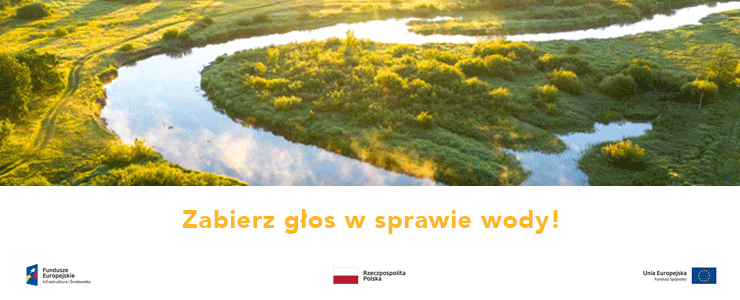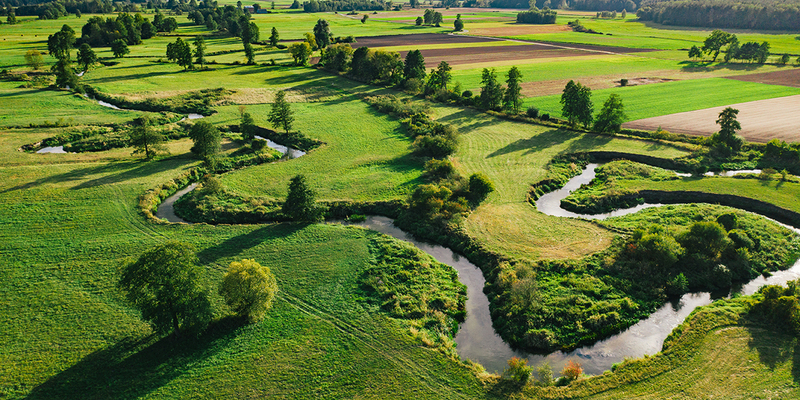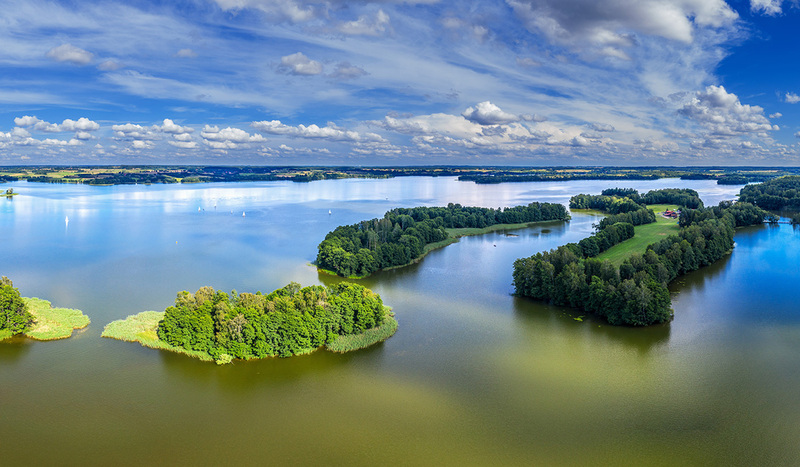Clean water - a simple matter? We are waiting for your opinion until October 14!
4 październikaa 2021 r.
Many people spent this year's holidays by the water in Poland. A river, a lake, the sea - what can we say about water quality? Let's take a closer look at the problems and challenges we have to face in our country so that the water status does not deteriorate. This is a wake-up call to join the public consultations for the second update of the water management plans, which are held only until October 14.
We all want to spend a nice time by clean lakes, rivers or the Baltic Sea. Unfortunately, the status of our waters leaves a lot to be desired. Almost 75% of river waters and over 20% of lake waters require remedial measures to be taken that will improve or maintain their good status. These are the results of analyses and research carried out as part of the second update of water management plans (IIaPGW). Their drafts are developed in a 6-year cycle by the National Water Management Authority. These are one of the most important planning documents in water management.
Your opinion on water matters

All comments and conclusions submitted as part of public consultations are processed by experts, and those deemed legitimate will be included in the IIaPGW. After the end of six-month public consultations and the legislative procedure, the water management plans will be adopted in the form of regulations of the minister responsible for water management, and the relevant units will carry out the activities specified in the document.
The costs of improvement of water status
The updated water management plans provide for nearly 27,000 corrective actions for almost 4 thousand water bodies (river, lake, reservoir, underground, coastal and transitional). Their cost has been estimated at about PLN 30 billion, most of which is allocated to river waters, because improving their status requires the greatest expenditure.
Of course, the current state of affairs could be improved, because each of us has an impact on the aquatic environment. There's no denying that industrial infrastructure and lifestyle strongly affect the quality and availability of water. - Our priority should be to implement appropriate habits to maintain a good or not deteriorating water status. Taking care and proper management of waters is necessary to achieve a good standard of living in society and the balance of nature - emphasizes Przemysław Gruszecki, Director of the Department of Water Environment Management at the National Water Management Authority.
Many factors affect the degradation of water, but to a large extent it is the result of human behaviour. We are dealing here with anthropogenic pressure, i.e. direct and indirect impact of man on the aquatic environment. The status of surface waters and groundwater is negatively affected, among others, by industrial and municipal wastewater, air pollution, as well as fertilizer residues flowing from the fields to the waters. Too much nitrogen and phosphorus compounds leads to the phenomenon which is the most difficult to combat, this phenomenon is known as eutrophication (overfertilization) of water bodies. Contaminated waters contribute to the destruction and even extinction of plants and animals.

Do not litter - whether water is clean or not depends on us!
Rubbish dumped on the banks and in rivers is not indifferent to ecosystems - it poses a threat both to human health and the environment.
Employees of the National Water Management Authority, together with volunteers, regularly clean littered rivers, lakes and their banks. And we are not talking only about small rubbish that we should take with us after resting by the water (if there are no waste bins), but also about bulky items, such as audio/video devices and household appliances. - Unfortunately, I have the impression that this problem has worsened during the pandemic. In this way, we will definitely not improve the quality of waters. In addition, increasingly we note numerous contamination caused by pharmaceuticals. The consequences of such actions can be serious, therefore it is extremely important to implement appropriate procedures and solutions - says Przemysław Gruszecki and calls urgently: Let's start taking care of the aquatic environment, because even the best corrective actions will not allow us to restore its good condition. And it is certainly more pleasant to spend your free time in well-maintained places, and not polluted or devastated ones.
Local governments, which are responsible for implementing corrective actions related to water in their region, should also be involved in activities for the protection of the aquatic environment. For example, it is worth mentioning Masuria. - Fortunately, this region is not heavily influenced by agricultural or industrial pressure. Tourism is the greatest threat to these areas. It is the role of local governments to organize tourism and wastewater management, including ensuring the collection of sewage from toilets from boats, protection of the shores of lakes against devastation, regulation of the prohibition of sailing with motorized equipment - emphasizes Przemysław Gruszecki.
Each of us contributes to the state of the environment in which we live, we are all responsible for our actions and everyday choices, including those concerning the use of water resources. Therefore, let us make reasonable decisions, because the condition of these resources left to future generations depends on it. Join the IIaPGW public consultations and express your opinion on water! More information on water management plans can be found on the website: www.apgw.gov.pl.

Rest news
- There it is! The first plug from The National Water Management Authority is ready for download.
- World Water Day 2022 under the slogan "Making the invisible visible"
- The validity period of the 2016 water management plans was extended until 22.12.2022.
- From plans to action - what awaits the water management in Poland?
- We will not improve the status of water without specific actions
- Public consultations IIaPGW and aPZRP: over 2,000 applications in order to ensure security against flooding and good water condition!